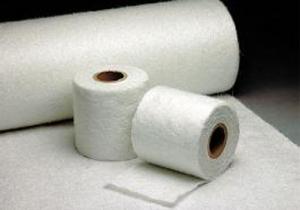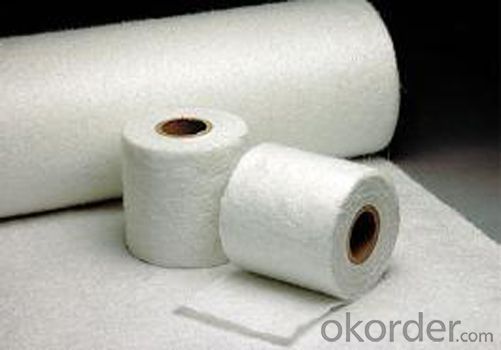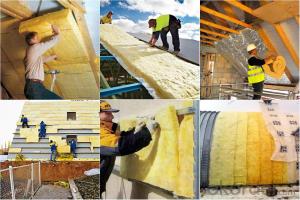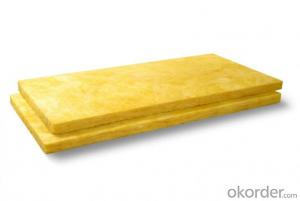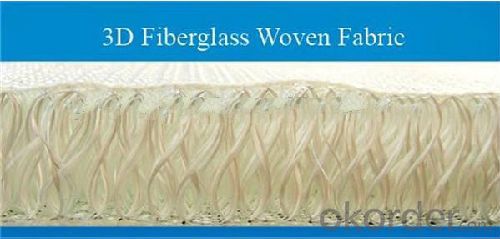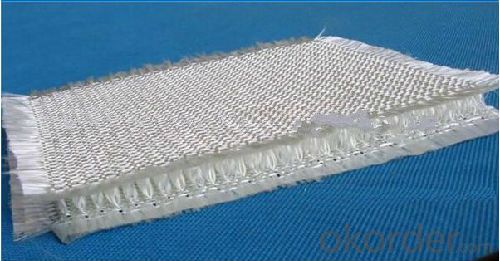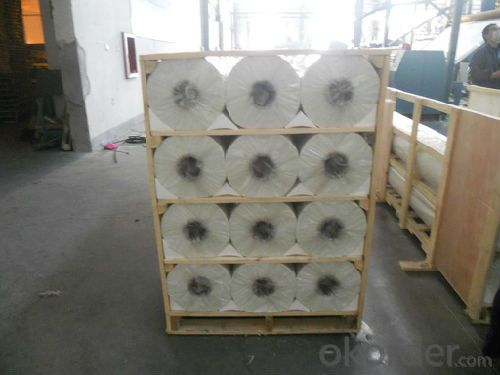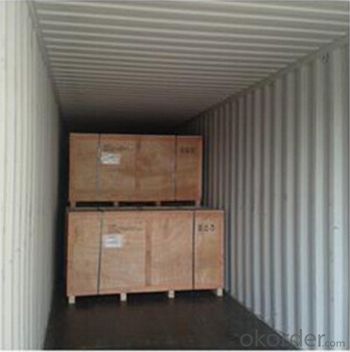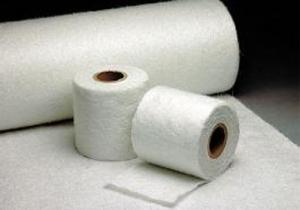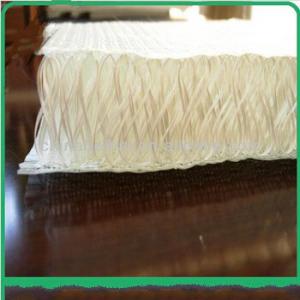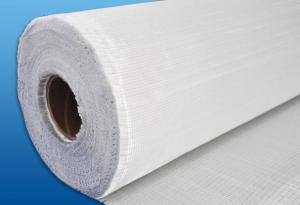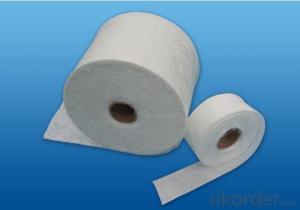Fiberglass Mat Tissue Sandwich Fabric Complex Mat 1380g 200~2600 mm
- Loading Port:
- Shanghai
- Payment Terms:
- TT or LC
- Min Order Qty:
- 5000 m²
- Supply Capability:
- 20000 m²/month
OKorder Service Pledge
OKorder Financial Service
You Might Also Like
Description & application | |||||||||||||||||||||||||||||||||||||||||||||||||||||||||||||||
◎ 3D Fabric can be made of glass fiber, carbon fiber or basalt fiber. Hybrid fabrics also can be produced. The thickness of 3D Fiberglass Fabric ranges from 3.4 mm to 22.6 mm and the width of it measures no more than 3000 mm. Processed with resin, 3D Fiberglass Fabric gains an outstanding capability of anti-debonding, impact resistant, lightweight and high strength, thermal insulating and acoustic damping. 3D Fiberglass Fabric is often the first choice for many enterprises to manufacture framework members of automobile, locomotives, aerospace, ship, sports, wind generator, construction, decoration, ect.
| |||||||||||||||||||||||||||||||||||||||||||||||||||||||||||||||
Main Traits | |||||||||||||||||||||||||||||||||||||||||||||||||||||||||||||||
◎ The structure of sandwich to increase strength, reduce product weight and better surface finish. | |||||||||||||||||||||||||||||||||||||||||||||||||||||||||||||||
| |||||||||||||||||||||||||||||||||||||||||||||||||||||||||||||||
| |||||||||||||||||||||||||||||||||||||||||||||||||||||||||||||||
| |||||||||||||||||||||||||||||||||||||||||||||||||||||||||||||||
Each roll is wrapped by PE film and then packed into carton. Stacking in bulk or palletized is available; the pallet shall be no higher than 2 layers.
| |||||||||||||||||||||||||||||||||||||||||||||||||||||||||||||||
FAQ
Q : Are you a factory or trading company ?
A: We have factories , can offer best quality product and reasonable price for you.
Q: Can you accept sample order?
A: Yes, we accept samples with little and reasonable charge
Q: What is your MOQ?
A: Normally,4 rolls.
- Q: What are the different reinforcement densities available for fiberglass mat tissue?
- The different reinforcement densities available for fiberglass mat tissue can vary depending on the specific application and manufacturer. However, commonly used densities range from 15 grams per square meter (gsm) to 1000 gsm. Lower density fiberglass mat tissue, such as those in the range of 15-50 gsm, are often used for lightweight applications where strength and durability are not the primary concerns. These lower density mats are commonly found in areas like decorative surfaces, wallpaper, and lightweight insulation. Medium density fiberglass mat tissue, ranging from 50-300 gsm, offers a balance between strength and weight. This range is frequently used in various industries including construction, automotive, and marine. The medium density mats provide good reinforcement properties while still allowing flexibility and ease of handling. Higher density fiberglass mat tissue, typically above 300 gsm, is employed in heavy-duty applications that require high strength and superior durability. These mats are commonly used in areas like roofing, flooring, and composite manufacturing. The higher density provides enhanced mechanical properties and ensures the required structural integrity. Ultimately, the choice of reinforcement density for fiberglass mat tissue depends on the specific requirements of the application, including the desired strength, weight, and overall performance characteristics. It is important to consult with manufacturers and industry experts to determine the most suitable density for a particular use case.
- Q: Is fiberglass mat tissue resistant to moisture?
- Yes, fiberglass mat tissue is resistant to moisture. Fiberglass mat tissue is made from tightly woven strands of glass fibers, which are then bonded together with a resin. This resin creates a barrier that prevents moisture from penetrating the tissue. As a result, fiberglass mat tissue is highly resistant to moisture and can be used in applications where exposure to water or high humidity is expected. Additionally, the moisture resistance of fiberglass mat tissue helps prevent the growth of mold or mildew, making it a suitable choice for damp environments.
- Q: What are the different quality standards for fiberglass mat tissue?
- Various quality standards are utilized to evaluate the quality of fiberglass mat tissue, ensuring its suitability for intended applications and meeting performance requirements. The ASTM D2178 standard is widely used to assess the quality of fiberglass mat tissue. This standard outlines the specifications for base materials used in the production of asphalt and coal tar roofing products. It covers physical properties such as weight, thickness, tensile strength, tear resistance, and permeability. Another recognized standard is ISO 3376, which provides guidelines for determining the tensile properties of nonmetallic materials, including fiberglass mat tissue. It defines test methods for parameters like tensile strength, elongation at break, and modulus of elasticity. In Europe, the EN 1871 standard is commonly used for assessing the quality of fiberglass mat tissue. This standard specifies the requirements for reinforced bitumen sheets used in roofing applications. It covers physical properties, dimensional stability, resistance to heat, and resistance to aging. Furthermore, there are industry-specific quality standards that may apply to fiberglass mat tissue used in particular applications. For instance, the ASTM C1666 standard specifically addresses fiberglass reinforced cementitious panels and sets requirements for the materials used in their production. Overall, these various quality standards for fiberglass mat tissue ensure that it meets specific performance criteria and can be effectively utilized in applications such as roofing, construction, and insulation. They establish a framework for manufacturers, suppliers, and customers to assess and compare the quality of different products in the market.
- Q: Can fiberglass mat tissue be used for repairing fiberglass shower stalls?
- Yes, fiberglass mat tissue can be used for repairing fiberglass shower stalls. Fiberglass mat tissue is a versatile material that is commonly used for reinforcing and repairing fiberglass structures, including shower stalls. It is designed to provide strength and durability to the repaired area, ensuring a long-lasting and reliable fix. When used in combination with a suitable fiberglass resin, fiberglass mat tissue can effectively repair cracks, holes, and other damages in fiberglass shower stalls. However, it is important to carefully follow the manufacturer's instructions and guidelines for proper application and curing to ensure the best results.
- Q: Does fiberglass mat tissue provide any sound insulation?
- Yes, fiberglass mat tissue does provide sound insulation. Its dense and fibrous structure helps absorb and dampen sound waves, reducing noise transmission.
- Q: Can fiberglass mat tissue be used for bridge construction?
- Bridge construction can indeed utilize fiberglass mat tissue. This adaptable material provides numerous benefits. Its lightweight nature and impressive strength make it ideal for bridges, especially when weight is a key consideration. Moreover, fiberglass mat tissue boasts exceptional durability and corrosion resistance, essential for maintaining bridges' longevity. Its malleability allows for flexible bridge designs, as it can be easily molded into different shapes. In addition, fiberglass mat tissue possesses excellent impact resistance and fatigue performance, guaranteeing the bridge's ability to withstand heavy loads and constant traffic. All in all, fiberglass mat tissue represents a dependable and cost-effective option for bridge construction.
- Q: How does fiberglass mat tissue perform in terms of moisture resistance?
- Fiberglass mat tissue performs excellently in terms of moisture resistance. Its dense structure and composition make it highly resistant to water absorption, preventing moisture from seeping through and causing damage to the underlying material. This property makes fiberglass mat tissue an ideal choice for various applications where moisture protection is crucial, such as in the construction of roofs, walls, and insulation.
- Q: Is fiberglass mat tissue suitable for insulation in laboratories?
- Fiberglass mat tissue is indeed suitable for insulation in laboratories. It is a commonly used material for thermal insulation due to its excellent thermal properties. Fiberglass mat tissue has a high resistance to heat transfer, making it an effective insulator to maintain stable temperatures within laboratory spaces. Additionally, fiberglass mat tissue is also resistant to moisture, chemicals, and fire, which are crucial factors in laboratory settings. It can withstand exposure to harsh chemicals and does not degrade or lose its insulating properties over time. This makes it ideal for insulation in laboratories where various chemicals and substances are handled. Furthermore, fiberglass mat tissue is easy to install and can be customized to fit specific insulation requirements. It can be applied to walls, ceilings, and pipes to create a barrier that prevents the transfer of heat, ensuring a controlled environment within the laboratory. Overall, fiberglass mat tissue is a suitable choice for insulation in laboratories due to its thermal resistance, chemical resistance, fire resistance, and ease of installation. It helps to maintain stable temperatures, protects against chemical exposure, and ensures safety in laboratory environments.
- Q: How does the strength of fiberglass mat tissue compare to other reinforcement materials?
- The strength of fiberglass mat tissue is considered to be quite high when compared to other reinforcement materials. Fiberglass mat tissue is made up of numerous glass fibers that are tightly intertwined, resulting in a strong and durable material. This type of reinforcement material is commonly used in applications that require high strength, such as in the construction industry for reinforcing concrete structures, in the automotive sector for manufacturing lightweight yet strong components, and in the aerospace industry for building aircraft parts. Compared to other reinforcement materials like steel or carbon fiber, fiberglass mat tissue offers several advantages. Firstly, it is relatively lightweight, which makes it easier to handle and transport. Additionally, fiberglass mat tissue has a high tensile strength, meaning it can withstand stretching or pulling forces without breaking. It also has good impact resistance and is capable of absorbing energy, which makes it suitable for applications where impact resistance is important. Moreover, fiberglass mat tissue is highly corrosion resistant, making it suitable for use in harsh environments or in contact with chemicals. Unlike steel, it does not rust or deteriorate over time. Furthermore, fiberglass mat tissue is non-conductive, which is beneficial in applications where electrical conductivity can be a safety hazard or interfere with electronic equipment. Overall, the strength of fiberglass mat tissue is considered to be excellent when compared to other reinforcement materials. Its high tensile strength, lightweight nature, corrosion resistance, and impact resistance make it a versatile and widely used material in various industries.
- Q: Glass fiber cotton or ceramic fiber paper insulation?
- Glass fiber has low temperature resistance, preferably not higher than 550 degrees, and ceramic fiber has good temperature resistance.
Send your message to us
Fiberglass Mat Tissue Sandwich Fabric Complex Mat 1380g 200~2600 mm
- Loading Port:
- Shanghai
- Payment Terms:
- TT or LC
- Min Order Qty:
- 5000 m²
- Supply Capability:
- 20000 m²/month
OKorder Service Pledge
OKorder Financial Service
Similar products
Hot products
Hot Searches
Related keywords
